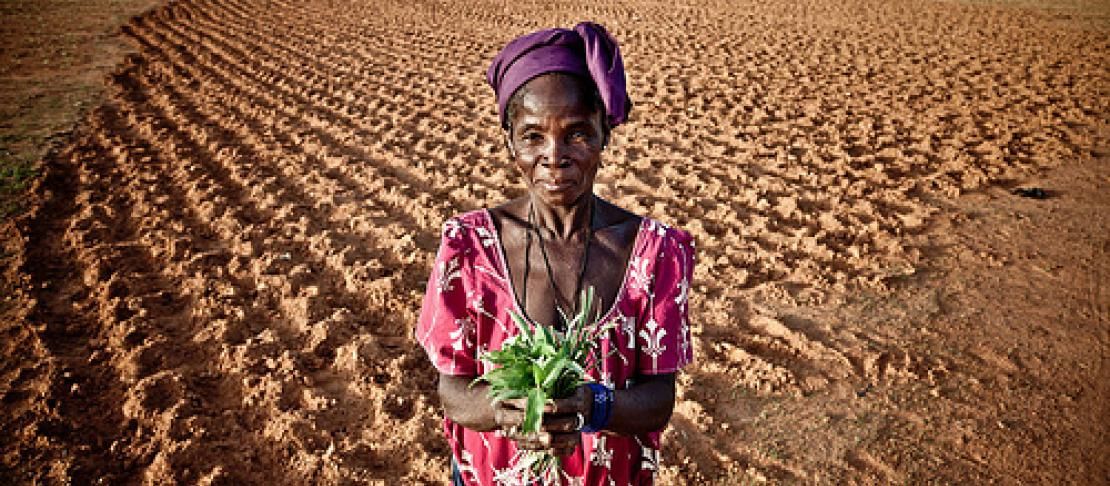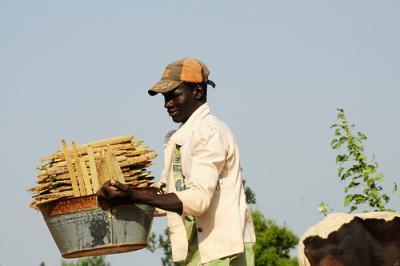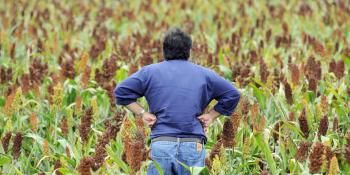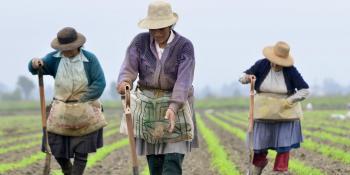New report reveals how climate change will hit West Africa

In a joint effort, International Food Policy and Research Institute (IFPRI) and CCAFS, have developed the West African Agriculture and Climate Change monographs. It is the first of three monographs on climate change and agriculture, featuring West, Central, and Eastern Africa. The monographs result from a research project headed by IFPRI Senior Researcher Gerald Nelson.
Policy decisions are usually made in a messy process that includes incomplete information and often conflicting desires and goals of different interest groups.
Policy researchers, like me, want to improve the quality and accessibility of the information that feeds into this process. We hope that more and better information will help all parties understand the consequences of the choices being considered.
That was the intention of this monograph project: to help policymakers understand the uncertainties surrounding climate change effects in their countries and give national- and regional-level guidance with implications for a range of policy decisions, such as investments in the development of new plant and animal varieties, water management strategies, the role of regional trade policies, and many more policy areas.
In this blog post, I take a bird’s-eye view of what we do and do not know about climate change and agriculture in Africa south of the Sahara and the implications for the policymaking process.
Read the rest of Gerald Nelson's blog entry here.
This project was a major collaboration, involving not only IFPRI and CCAFS, but also the West and Central African Council for Agricultural Research and Development (CORAF/WECARD), a regional agricultural research and development organization, and scientists from each of the countries.
It offers, for the first time, country-by-country climate data and analysis for 11 of the countries that make up West Africa: Benin, Burkina Faso, Cote d’Ivoire, Ghana, Guinea, Liberia, Niger, Nigeria, Senegal, Sierra Leon, and Togo.
- Access the report West African Agriculture and Climate Change: A comprehensive analysis
- Press release (English) | communiqué de presse (Français)

CCAFS Regional Program Leader for West Africa, Robert Zougmoré, said
“This book is greatly needed in the West Africa region. It fills a major gap in the availability of up-to-date scientific information on the vulnerability of the agriculture sector to climate change in countries and in the region.”
“This monograph will help regional and national decision makers and other stakeholders make better-informed decisions,” he continued.
Learn more about what CCAFS is doing in West Africa, by visiting the regional page here.
CCAFS is currently working with partners, farmers and researchers to make sure farmers receive climate information services that they can use, and understand how to incorporate them in their everyday farm-decisions. Learn more about this project



